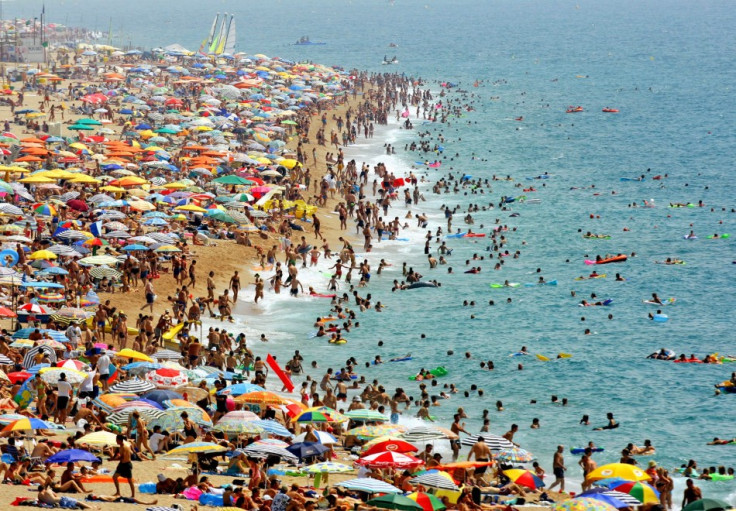Spanish beach warning as holidaymakers could face £800 fine for jumping into sea
Thousands of tourists visit various Spanish beaches every year

Tourists have received a Spanish beach-related warning and a breach could lead to a hefty fine.
A Spanish beach receives quite a few tourists every summer and this year could be no different. Almost 16 million travellers from the UK travelled to Spain last year, with most of them visiting the country's party islands such as Ibiza and Majorca.
Majorca's important rule
One of the most popular activities among tourists in Spain is sun bathing and then diving into the sea to cool down. But beachgoers in Majorca could be slapped with an £800 (900 euros) fine if they jump into the Mediterranean, amid a number of serious incidents, according to The Sun.
The police and town hall are working together in warning holidaymakers to avoid jumping into the sea, according to Mirror.
Majorca's two beach towns Alcudia and Muro are famous for their natural beauty, boat trips and pristine sands. However, officials have been forced to put in strict rules for the safety of tourists as reckless swimmers have been using the jetties as diving boards.
Young holidaymakers are usually not aware of the lack of depth at the Bay of Alcudia and Playa de Muro, according to the locals. Both beaches are known for their calm and shallow waters, but the reckless beachgoers still toss themselves off the jetties despite warning signs in place. These Spanish beaches have a municipal order prohibiting these types of jumps, but tourists are either unaware of it or not bothered by the potential risks and penalties.
Accidents happen every year in Majorca
At the Spanish beach of Muro, Police Deputy Inspector Toni Carrio is in charge as he is working alongside excursion staff and lifeguards to alert tourists of the danger.
"Every year we have incidents with people jumping. You can't see how deep it is. People don't know that it's only half a metre. The incidents are usually minor, but this season we have had two serious ones. It's been years since there was anything as serious as now. It's worrying that some adults jump, especially if they are with their children," Carrio told Majorca Daily Bulletin.
Adding further, Carrio said that fines are being seen as a "last resort" as a solution to this situation in Majorca. "The fine for jumping into the sea from the jetty is 900 euros, although no fine has been imposed up to now," said Carrio.
Swimmers have been spotted jumping into the water from the small pier where tourists gather on and off boats for various day trips. Even though the workers from various tour companies monitor the thrill-seeking swimmers, they have been unable to stop people from leaping into the shallow water at various beaches in Spain.
Just this summer, two jumpers have already been hospitalised and overall, at least seven incidents have taken place. Many more people are believed to have misjudged the dive and sustained injuries in the past.
In July, two people were injured after they jumped headfirst into the sea and one of them was from Spain itself. The 47-year-old Spanish man broke his nose and injured his neck as he didn't realize the water was only 60 centimetres deep.
The second man, a 38-year-old German, dove into the sea where it was just six feet deep and suffered a head injury. In one of the accidents, the victim was left unconscious and had to be rescued from the water.
"We ask people who come to be responsible. We cannot be constantly watching. By one leap you are changing your life. If you do well, well okay, you have fun. But if it goes wrong... it changes your life," a police spokesperson said.
© Copyright IBTimes 2025. All rights reserved.






















